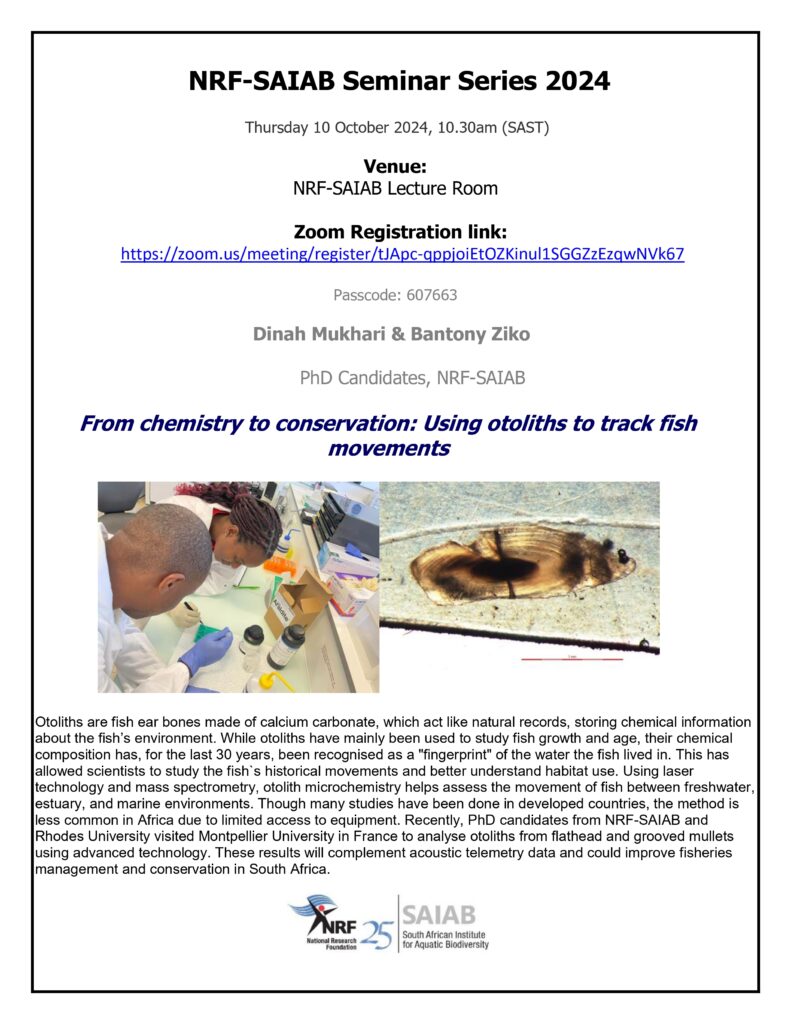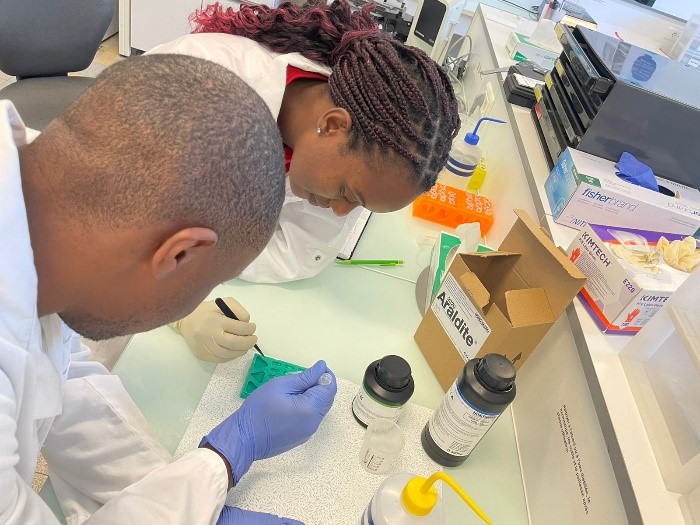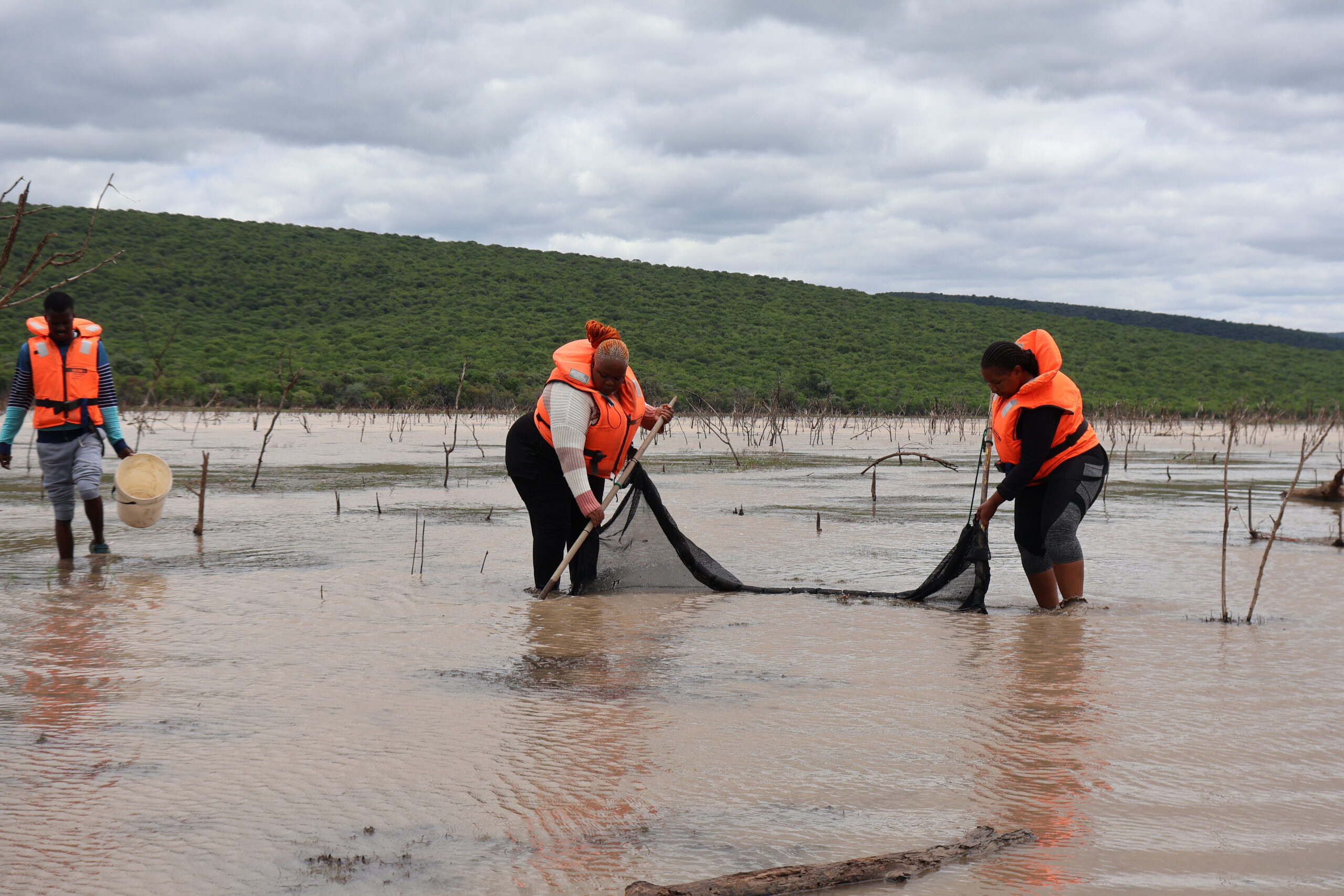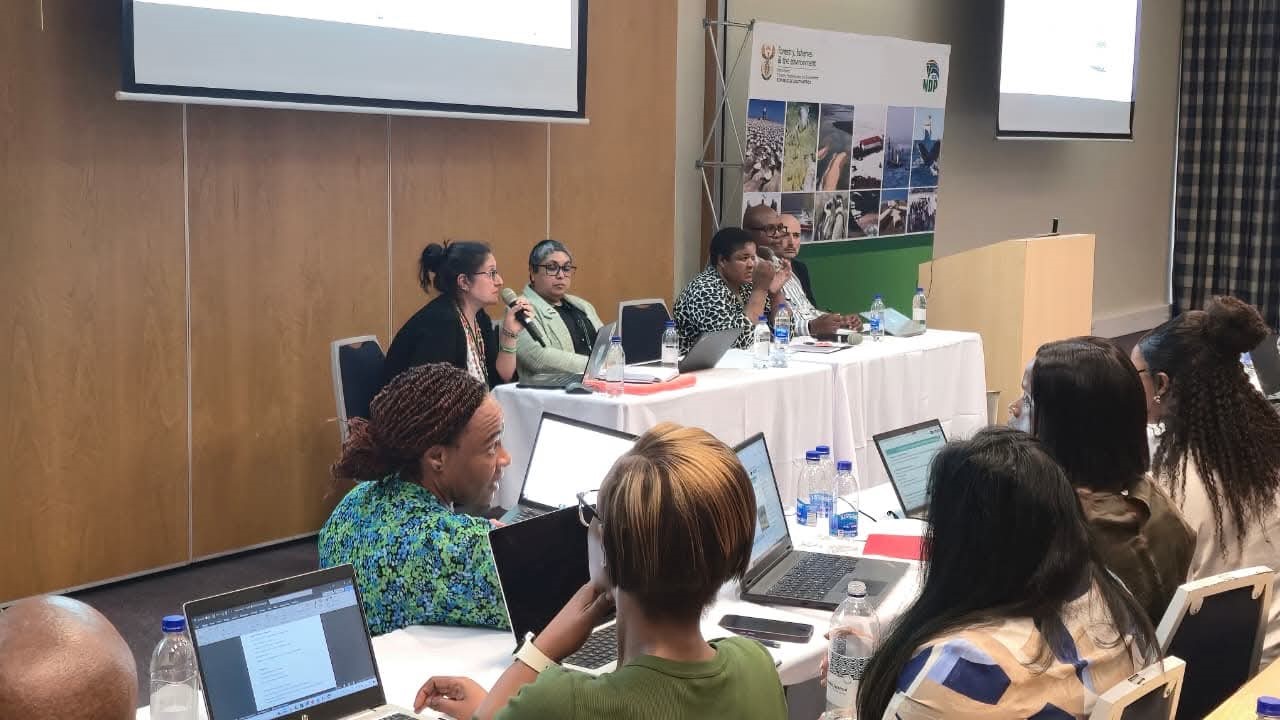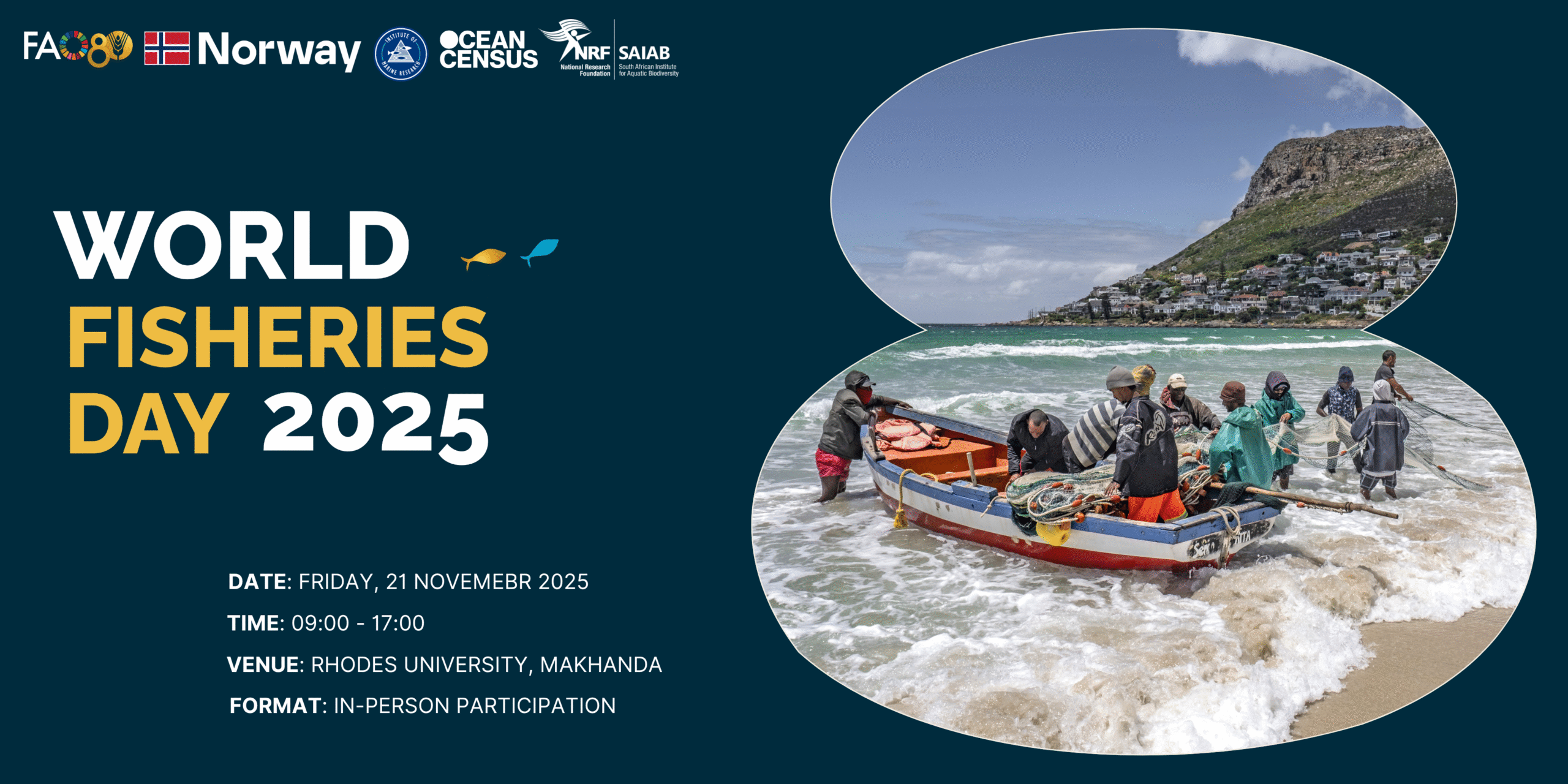Thursday 10 October 2024, 10.30am (SAST)
Venue: NRF-SAIAB Lecture Room
Zoom Registration link:
https://zoom.us/meeting/register/tJApc-qppjoiEtOZKinul1SGGZzEzqwNVk67
Passcode: 607663
by Dinah Mukhari & Bantony Ziko
PhD Candidates, NRF-SAIAB
From chemistry to conservation: Using otoliths to track fish movements
Otoliths are fish ear bones made of calcium carbonate, which act like natural records, storing chemical information about the fish’s environment. While otoliths have mainly been used to study fish growth and age, their chemical composition has, for the last 30 years, been recognised as a “fingerprint” of the water the fish lived in. This has allowed scientists to study the fish`s historical movements and better understand habitat use. Using laser technology and mass spectrometry, otolith microchemistry helps assess the movement of fish between freshwater, estuary, and marine environments. Though many studies have been done in developed countries, the method is less common in Africa due to limited access to equipment. Recently, PhD candidates from NRF-SAIAB and Rhodes University visited Montpellier University in France to analyse otoliths from flathead and grooved mullets using advanced technology. These results will complement acoustic telemetry data and could improve fisheries management and conservation in South Africa.
